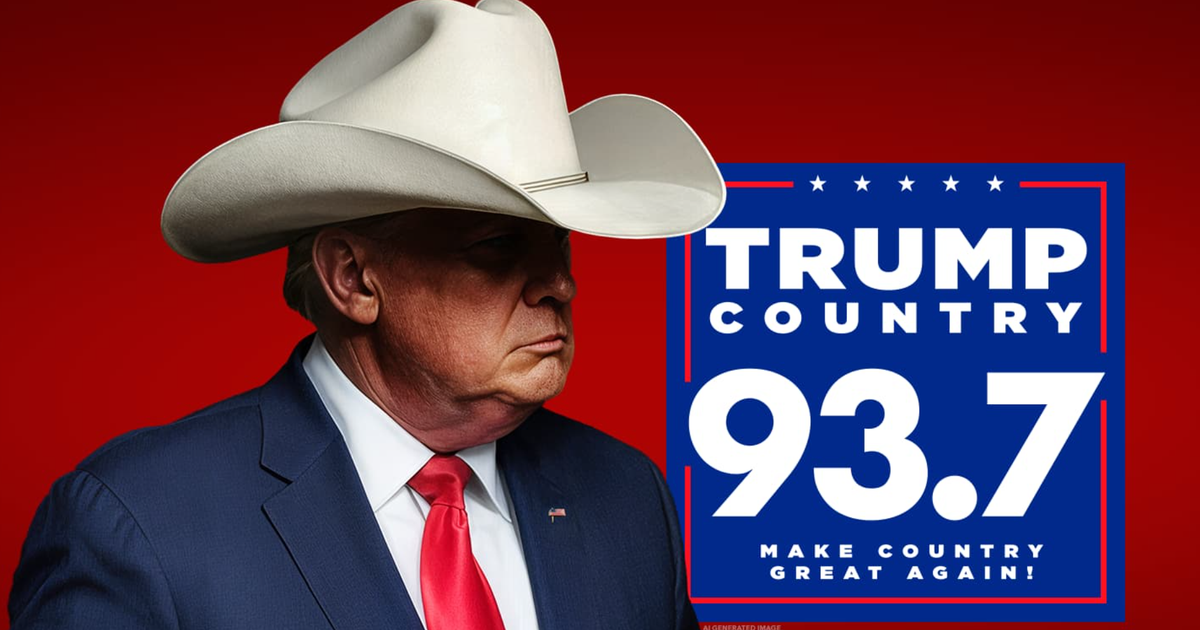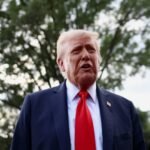Trump Joins Florida Radio: A Bold New Voice

Trump Country: The Rise of a Radio Station in Florida
Trump Country has emerged as a unique phenomenon in the world of broadcasting, particularly in the politically charged atmosphere of Florida. This article delves into the story of WHEL radio, which rebranded itself as “Trump Country” 93.7 FM, and explores the implications of this branding in the context of American media and politics.
The Birth of Trump Country
In a bold move, WHEL radio in Fort Myers, Florida, rebranded itself as “Trump Country” on Inauguration Day, marking the beginning of President Trump’s second term. This decision was not entirely new; the station had briefly experimented with the name in late 2020 before abandoning it. However, the rebranding has since taken off, with the station’s general manager, Jim Schwartzel, claiming that the station has tripled its ratings among adults aged 25-54 since March.
The decision to adopt the “Trump Country” name reflects a strategic marketing approach aimed at capitalizing on the strong support for Trump in the region. In Lee County, where the station is based, Trump won 64% of the vote in the 2024 election. The station’s logo features a typeface reminiscent of Trump’s campaign materials, and the imagery prominently displays the former president in a cowboy hat, a humorous twist that adds to the station’s appeal.
A Unique Branding Strategy
The branding of “Trump Country” is not just a catchy name; it reflects a strategic marketing approach aimed at capitalizing on the strong support for Trump in the region. The station’s slogan, “Make Country Great Again,” cleverly plays on Trump’s famous campaign slogan, further solidifying its connection to the former president. This branding strategy has proven effective, as evidenced by the station’s rise in ratings and visibility.
Schwartzel believes that the “Trump Country” branding showcases the immense power of Trump’s name in commercial media. The station’s content is a mix of current country hits and promotional segments that often feature a voice actor impersonating Trump. This creative approach includes humorous promotions, such as a “Deportation a Day” campaign that offers cruises to Mexico, cleverly juxtaposing the idea of deportation with vacationing. Such promotions not only entertain but also engage listeners in a way that resonates with the station’s target audience.
The Power of Trump’s Brand
The power of Trump’s brand cannot be underestimated. Schwartzel’s decision to name the station after Trump was inspired by the enthusiastic displays of support for the former president during boat parades in Florida. This grassroots enthusiasm has translated into a successful radio format that resonates with a specific demographic.
While the branding has garnered attention and increased ratings, it also carries risks. The use of Trump’s name and persona could alienate potential listeners who may not share the same political views. Schwartzel acknowledges this risk but maintains that the station’s focus is on entertainment rather than political discourse. He has made a conscious effort to avoid discussing political topics directly, opting instead for a lighthearted approach.
Engaging Content and Promotions
The content aired on “Trump Country” is designed to engage listeners while maintaining a lighthearted tone. The mix of current country hits and humorous promotional segments creates an entertaining atmosphere. The station’s creative approach includes promotions that resonate with its audience, such as the aforementioned “Deportation a Day” campaign. This clever juxtaposition of serious topics with humor not only entertains but also fosters a sense of community among listeners.
The station’s branding strategy has proven effective, as evidenced by the station’s rise in ratings and visibility. Schwartzel’s focus on entertainment rather than political discourse has allowed “Trump Country” to carve out a niche in a saturated market.
Navigating Risks and Controversies
The rise of “Trump Country” is indicative of a broader trend in the radio industry, where stations are increasingly seeking unique branding strategies to differentiate themselves. Don Tanner, a radio industry expert, notes that creative branding is essential for attracting and retaining listeners, especially in an era where streaming services like Spotify and Apple Music offer alternative listening options.
While the branding has garnered attention and increased ratings, it also carries risks. The use of Trump’s name and persona could alienate potential listeners who may not share the same political views. Schwartzel acknowledges this risk but maintains that the station’s focus is on entertainment rather than political discourse. He has made a conscious effort to avoid discussing political topics directly, opting instead for a lighthearted approach.
The Broader Context of Radio Broadcasting
The rise of “Trump Country” is indicative of a broader trend in the radio industry, where stations are increasingly seeking unique branding strategies to differentiate themselves in a saturated market. Creative branding is essential for attracting and retaining listeners, especially in an era where streaming services like Spotify and Apple Music offer alternative listening options.
As “Trump Country” continues to gain traction, it raises questions about the future of political branding in media. The station’s unique identity serves as a reminder of the enduring influence of political figures in commercial media. Whether this branding strategy will sustain its success in the long term remains to be seen, but for now, “Trump Country” stands as a testament to the power of a name and the creativity of those who seek to capitalize on it.
The Future of Trump Country
As “Trump Country” continues to gain traction, it raises questions about the future of political branding in media. Schwartzel’s decision to name the station after Trump was inspired by the enthusiastic displays of support for the former president during boat parades in Florida. This grassroots enthusiasm has translated into a successful radio format that resonates with a specific demographic.
Interestingly, Schwartzel is also seeking the Republican nomination for a U.S. House seat, which adds another layer of complexity to the station’s branding. While he does not appear on-air to avoid federal equal time requirements, his candidacy and the station’s branding are intertwined, reflecting the close relationship between media and politics in contemporary America.
Conclusion
The story of “Trump Country” is a fascinating case study in the intersection of media, branding, and politics. As WHEL radio continues to navigate the complexities of its unique identity, it serves as a reminder of the enduring influence of political figures in commercial media. Whether this branding strategy will sustain its success in the long term remains to be seen, but for now, “Trump Country” stands as a testament to the power of a name and the creativity of those who seek to capitalize on it.
Image Alt Tag: Trump Country radio station logo featuring President Trump in a cowboy hat.
For more insights into the evolving landscape of media and politics, check out our internal link placeholders: [Link to related article 1] and [Link to related article 2].
For further reading on the impact of political branding in media, visit CBS News.










